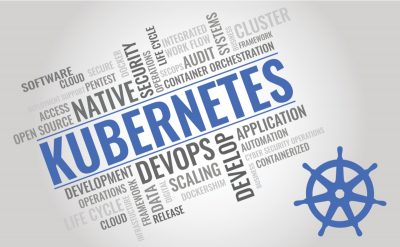Highlights –
- Cameyo’s new platform solution enables businesses to effectively deliver cloud desktops on their fully managed infrastructure or in their self-hosted environments.
- This can be useful for organizations looking to cut costs as the Microsoft Remote Desktop Services Client Access Licenses are expensive.
Cameyo Inc., a virtual application delivery platform, recently announced that it now supports Linux apps – to reduce its expenses of providing cloud desktops to employees in this time of remote and hybrid workforces.
Cameyo’s current platform already allows for the delivery of Windows, Software-as-a-service, and Internal Web Apps to any device. ‘Cameyo for Linux’ is a new product that will enable users to remotely launch Linux and Web Apps that don’t require a Windows server.
Because Microsoft Remote Desktop Services Client Access Licenses are expensive, this can be useful for organizations looking to cut costs. At the same time, the addition of this new feature provides organizations with increased flexibility to deliver apps from Linux, opening new avenues for app delivery.
Eyal Dotan, Cameyo’s Founder and Chief Technology Officer, said, “Every organization is working hard to ensure their people have access to all the critical tools they need to do their jobs from anywhere. But especially in this economic climate, most organizations are trying to balance that anytime, anywhere access with the need to reduce costs.”
Cameyo’s platform enables businesses to effectively deliver cloud desktops on their fully managed infrastructure or in their self-hosted environments. Companies can provide a plethora of apps anytime, anywhere, to almost any device using its solution, allowing organizations to streamline their own infrastructure.
For instance, it is currently possible to deliver Windows apps – and now Linux apps – to Chromebooks using Cameyo’s solution, which only has web browsers and Android apps as their primary interface. The result? Workers can use these “thin” hardware clients while still getting the whole PC experience.
Mario Zúñiga, Digital Workplace IT director at American Manufacturing Services Provider Sanmina, said, “We’re always looking for ways to make our operations more secure, efficient, and cost-effective. This is what originally brought us to Cameyo, and we’ve used Cameyo for several years to give our employees secure access to all of their apps on Chromebooks. Now with Cameyo for Linux, we’re able to deliver several of our internal web apps on Linux servers instead of Windows servers.”
According to a cost comparison by Parquantix, Linux server costs can be cheaper than Windows server costs, with an almost 50% less hourly cost to operate. This extends beyond the initial investment of Microsoft licensing and other considerations.
According to Robb Henshaw, the Co-founder and Chief Marketing Officer at Cameyo, the adoption of Linux also allows organizations to avoid becoming locked in with Microsoft products. By enabling customers to select which apps they want to deliver to which devices, they can easily choose their app delivery strategy.
Henshaw explained, “We’ve always believed that virtualization should help organizations become more flexible while increasing their flexibility — not just in terms of enabling people to be productive from anywhere, but also when it comes to enabling them to use whatever technologies they prefer. In our work with large enterprises, we’re seeing an increasing number of organizations who are actively looking to protect themselves against vendor lock-in.”
There came an increase in remote and hybrid work with the pandemic, which increased the need for the safe delivery of desktops and applications for remote workers. According to a recent Gallup poll, more than 70 million Americans can do their jobs remotely, with at least half working hybrid and three in ten working entirely remotely. Although using exclusively remote workers is expected to decline by 2023, it is still the case for many enterprise businesses.
Gabe Knuth, the Senior End-user Computing Analyst at Enterprise Strategy Group, said, “As organizations continue to adopt SaaS apps, there are an increasing number of use cases that don’t require Windows and instead only require a browser. Coupled with an increased demand for remote access to Linux apps driven by the shift to remote work, Linux support can be an important component of a hybrid workplace strategy.”













